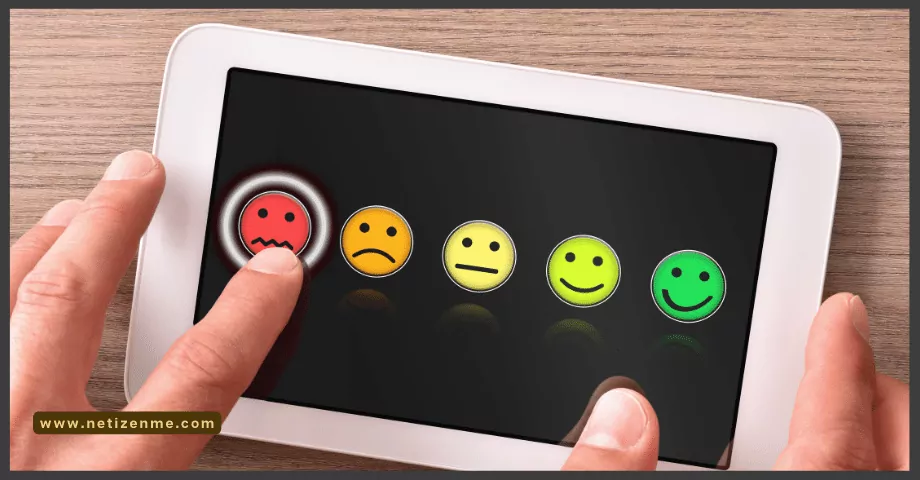
Literature review on fear of Negative Evaluation
Fear of negative evaluation
When we look at literature, we see FNE is defined as the anxiety associated with the learner’s perception of how other onlookers (instructors, classmates, or others) may negatively view their language ability ( WikiMatrix). Literature classifies negative evaluation as a psychological assemble reflecting “apprehension about others’ evaluations, misery over bad critiques by means of others, and the expectation that others would consider one negatively”. FNE lies at the centre of most social anxiety conceptualisations (Heimberg, Rapee & Brozovich, 2010).
Do you have fear of negative evaluation?
FNE is associated with particular character dimensions, such as anxiousness, submissiveness, and social avoidance. David Watson and Ronald Friend described the setup and a psychological test to assess it in 1969. People who rate excessive on the FNE scale are notably involved with looking for social approval or keeping off disapproval by using others. They might also tend to keep away from situations where they have to endure evaluation. A characteristic of social anxiety is known to be the fear of negative evaluation (FNE). Cognitive theories suggest that this fear can result from biased information processing (Clark and McManus, 2002).
FNE SCALE
The Fear of Negative Assessment Scale is a 30-item, self-rated scale used to assess social anxiety. David Watson and Ronald Friend once developed the FNE and identified it in an article published in 1969 in consulting and Clinical Psychology. The FNE is one kind of screening for anxiety issues that you may encounter during a doctor visit. Such screenings can help detect and treat anxiousness early. This early detection is vital because anxiety can worsen over time if left untreated.
Scores on the FNE scale correlate significantly with anxiety, depression, and standard distress measures in human beings with a social anxiety disorder (SAD). This means that the instrument is used for each clinician and researcher to screen for SAD. Also, it is used to monitor the change in social anxiety signs and symptoms over time. A quick model of the FNE was once devised by Leary (1983) to measure the identical assembly of the whole instrument.
Fear of negative evaluation and social anxiety
There are several general characteristics of anxiety issues and, more precisely, those high in fear of negative appraisal (FNE), including an attentive tendency towards socially threatening stimuli, negative perceptions of ambiguous social stimuli, the perception that one’s own performance is worse than that of others in social contexts, more negative self-image, low-performance expectations (e.g., Heinrichs & Hofmann, 2001).
What is Fear of Adverse Assessment?
Socially anxious people are hypothesised to have a deep core conviction that they would be adversely judged in social settings. Indeed, this perception has been described as ‘fear of adverse assessment (FNE). This fear forms a kind of cognitive bias that encourages one to concentrate on the probability that others may concentrate on a perceived imperfection in either appearance or action (Clark & Wells, 1995).
Looking at the literature, we see that researchers indicate that FNE is a critical feature of social anxiety. Leary, Kowalski, and Campbell (1988) investigated the role of self-presentational interest between anxious and non-anxious members and can be an example of this.
In one study, researchers asked participants how they would be rated following a glance, a brief conversation, or a prolonged conversation. Regardless of condition, socially anxious participants felt they would be judged more negatively than non-anxious participants. Interestingly, the evaluator would assess others almost as favourably in a follow-up analysis of socially anxious participants. In contrast, non-anxious participants felt that they would be judged more positively than other participants.
Check the following reference articles to learn more about the Literature review on Fear of Negative Evaluation
- Clark & Wells, 1995 and Leary, Kowalski, & Campbell, 1988, Journal of Experimental Psychopathology JEP Volume 3 (2012), Issue 5.
- Tera D. Letzring, Clifford C. Rone, & Douglas E. Colman, 2016, Implications of fear of negative evaluation, state anxiety, and implied level of target-dominance on perceptions of personality traits, tandfonline.
- Arlin Cuncic, 2020, Fear of Negative Evaluation Scale (FNE), verywellmind. (URL)
- Melle J. W. Van der Molen, Eefje S. Poppelaars, Caroline T. A. Van Hartingsveldt, Anita Harrewijn, Bregtje Gunther Moor and P. Michiel Westenberg, 2014, Fear of negative evaluation modulates electrocortical and behavioral responses when anticipating social evaluative feedback, Frontiers in Human Neuroscience.
- Glosbe.com, 2020, fear of negative evaluation in English, Glosbe.
- Understanding Depression: A Guide to Resources and Self-Care

- Mastering Positive Thinking: Conquer Negative Thoughts

- Pros and Cons of Structuralism and Functionalism

This article is written by:

Nisar Ahmad
Nisar is a passionate content writer and loves to share his ideas about the world. He an energetic self persuasive author who loves to composes and plans to develop himself and his readers with every one of his steps.




